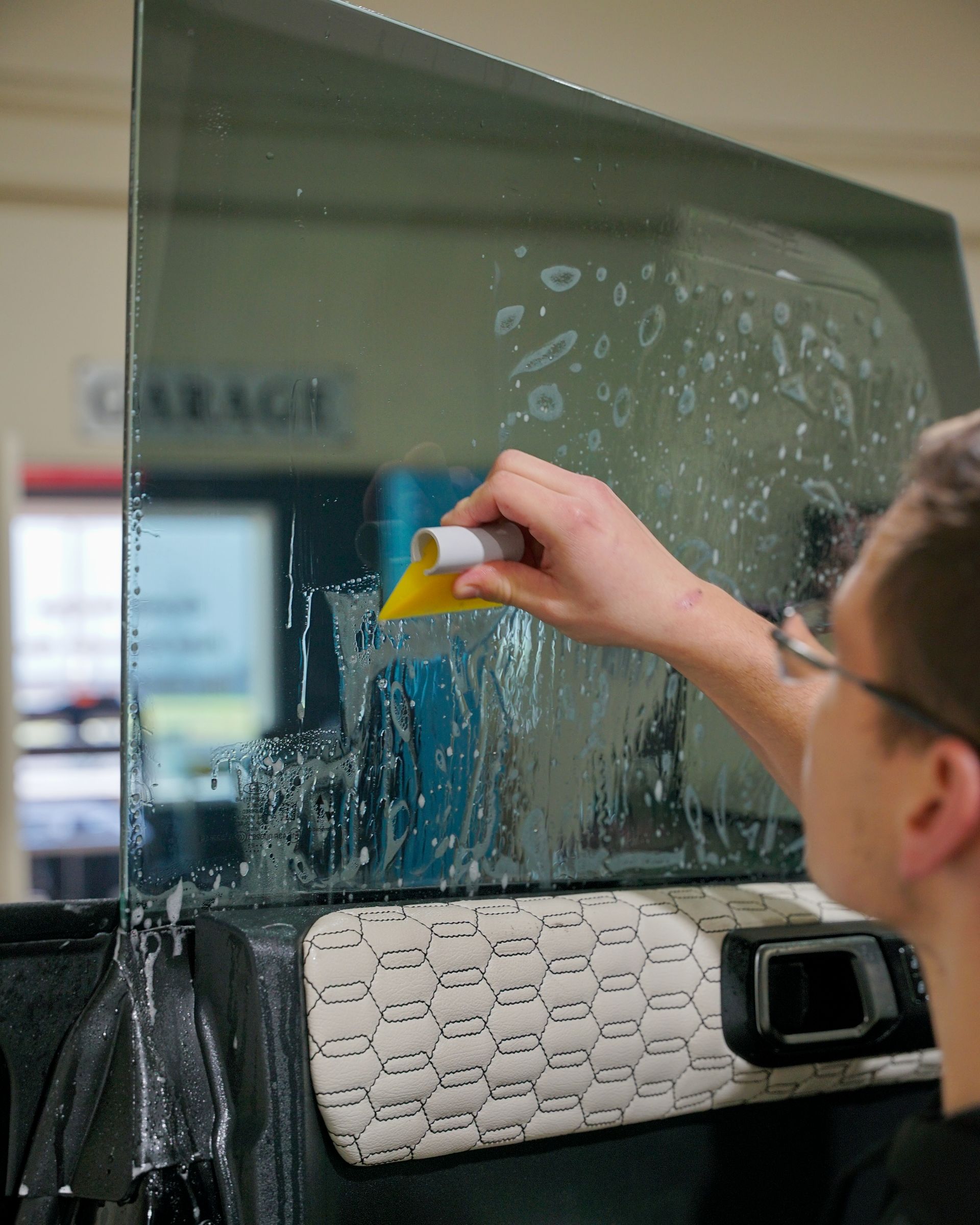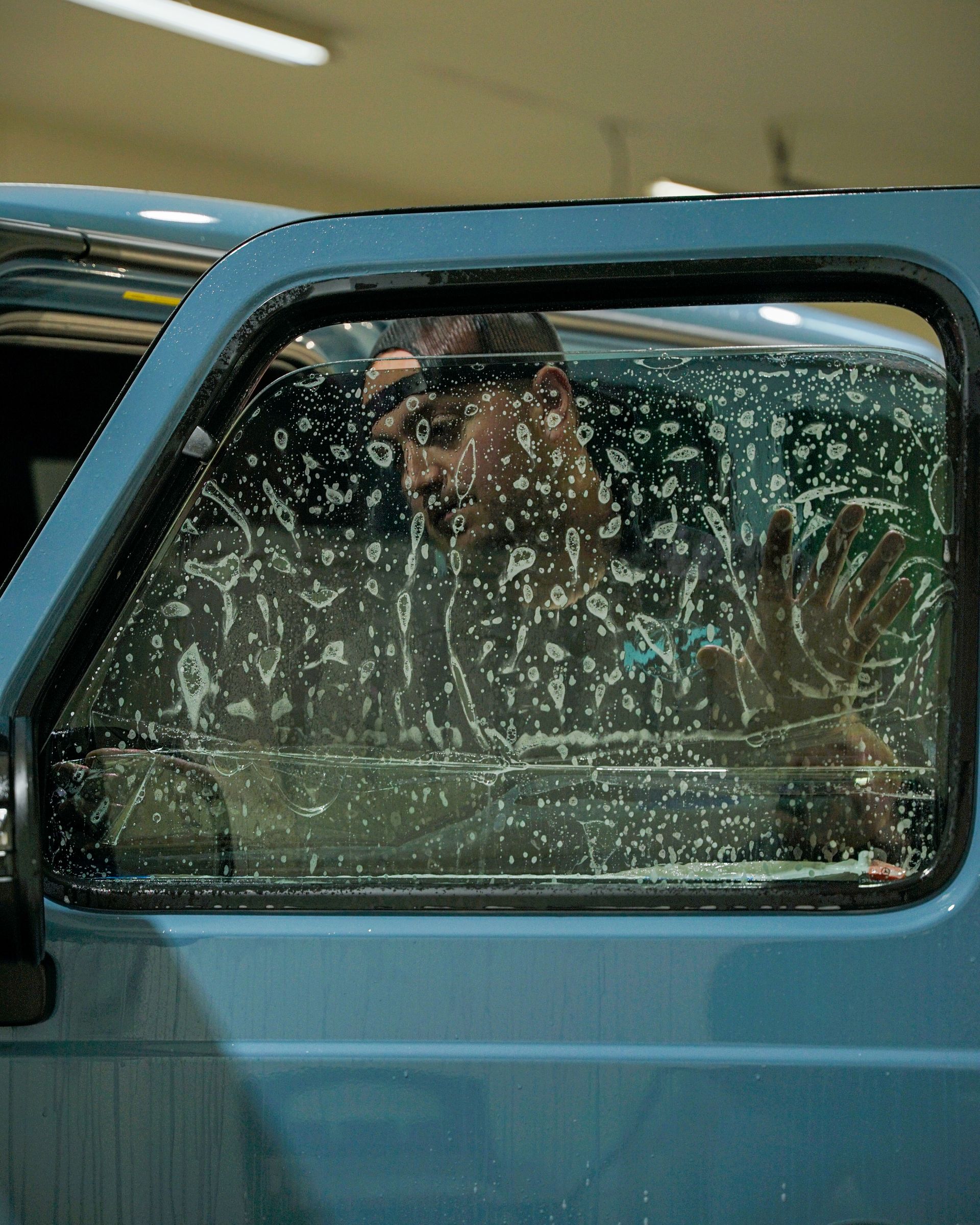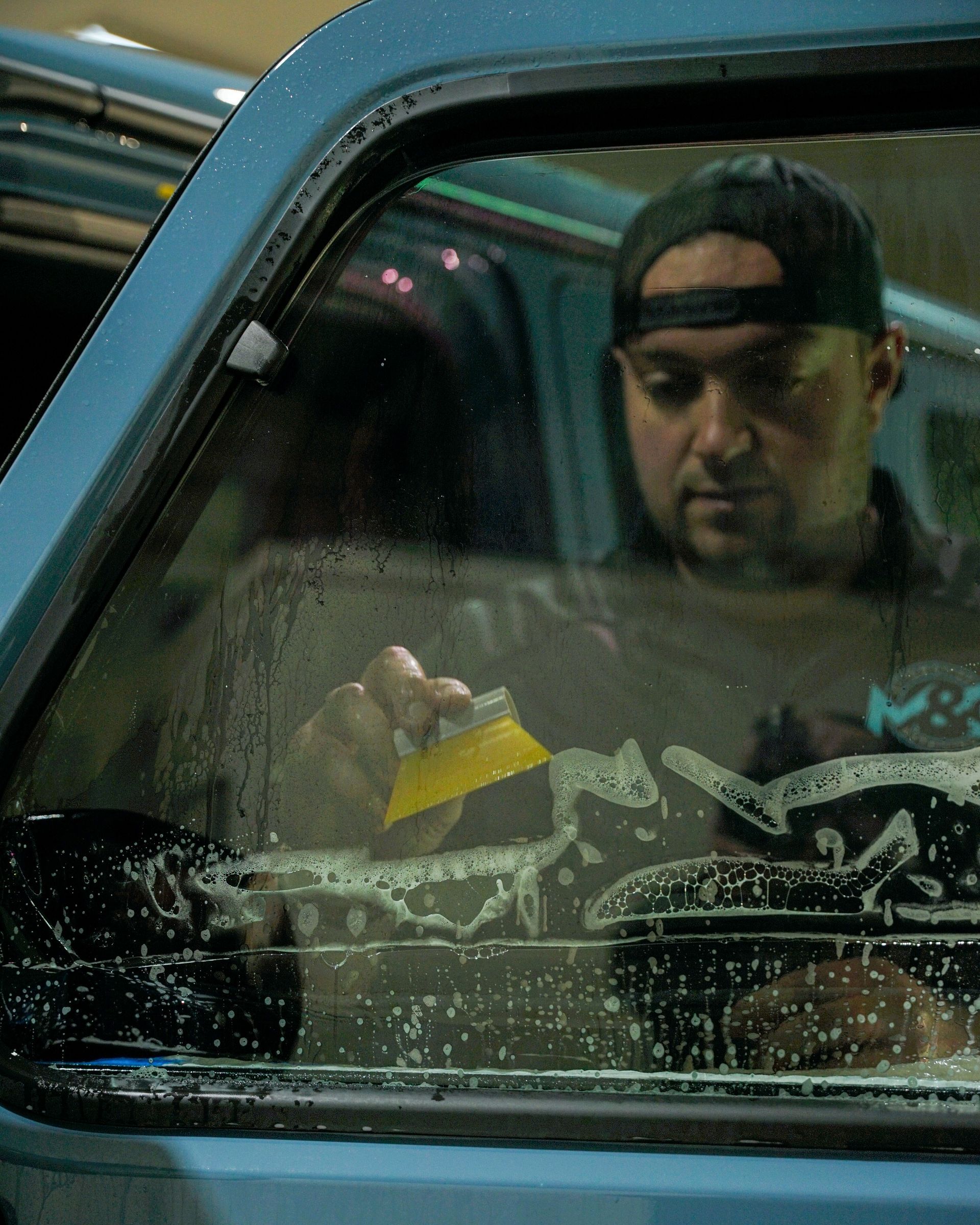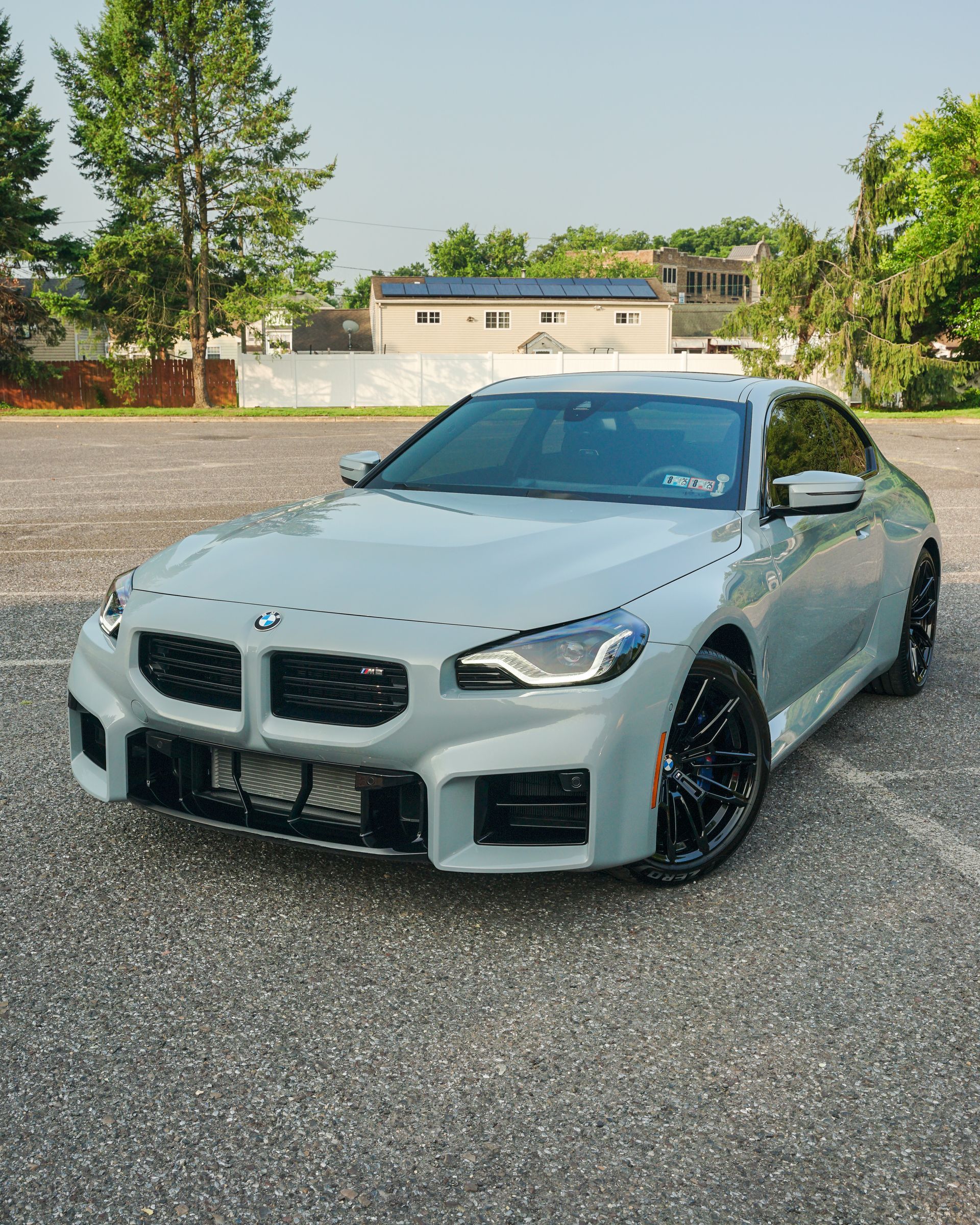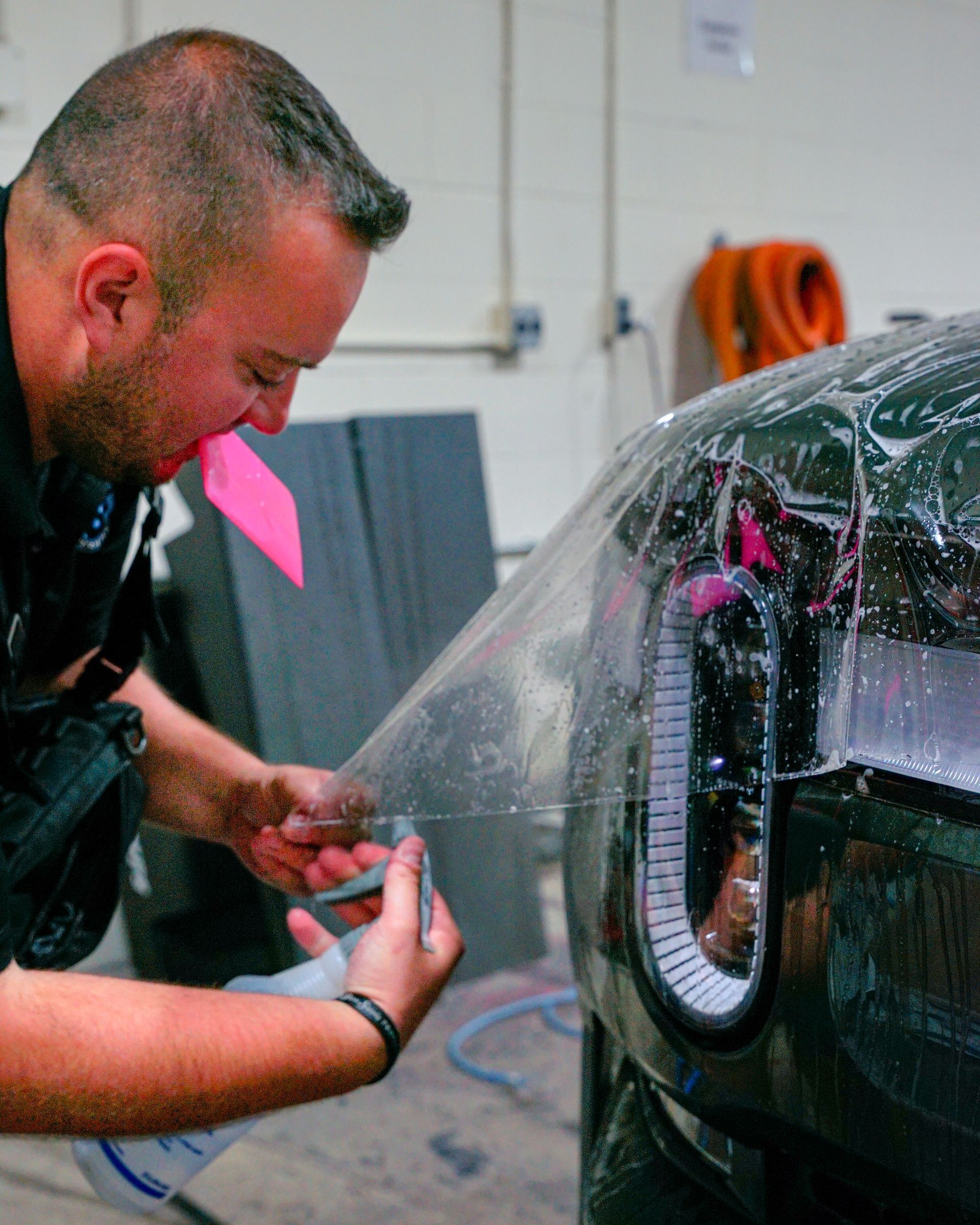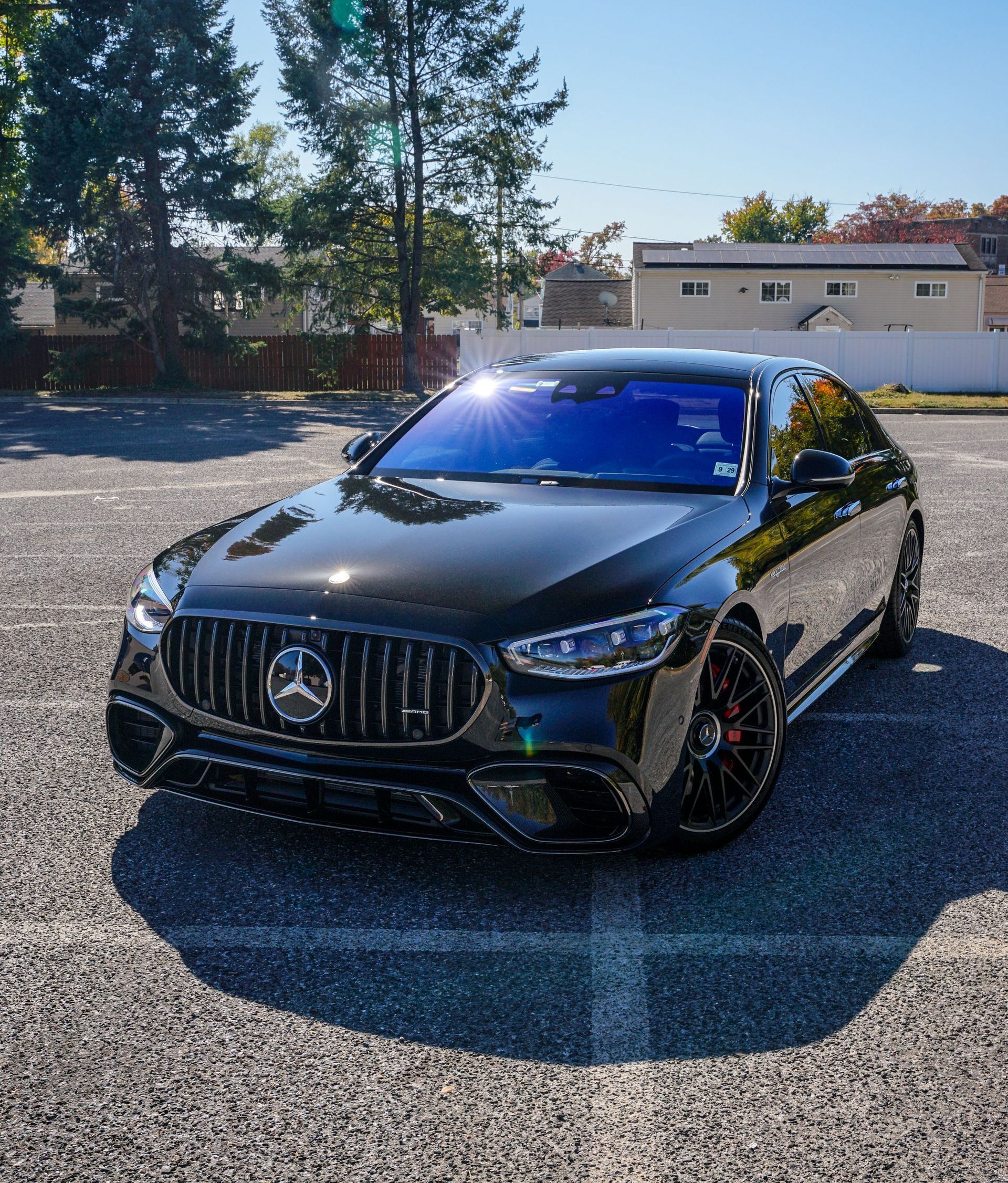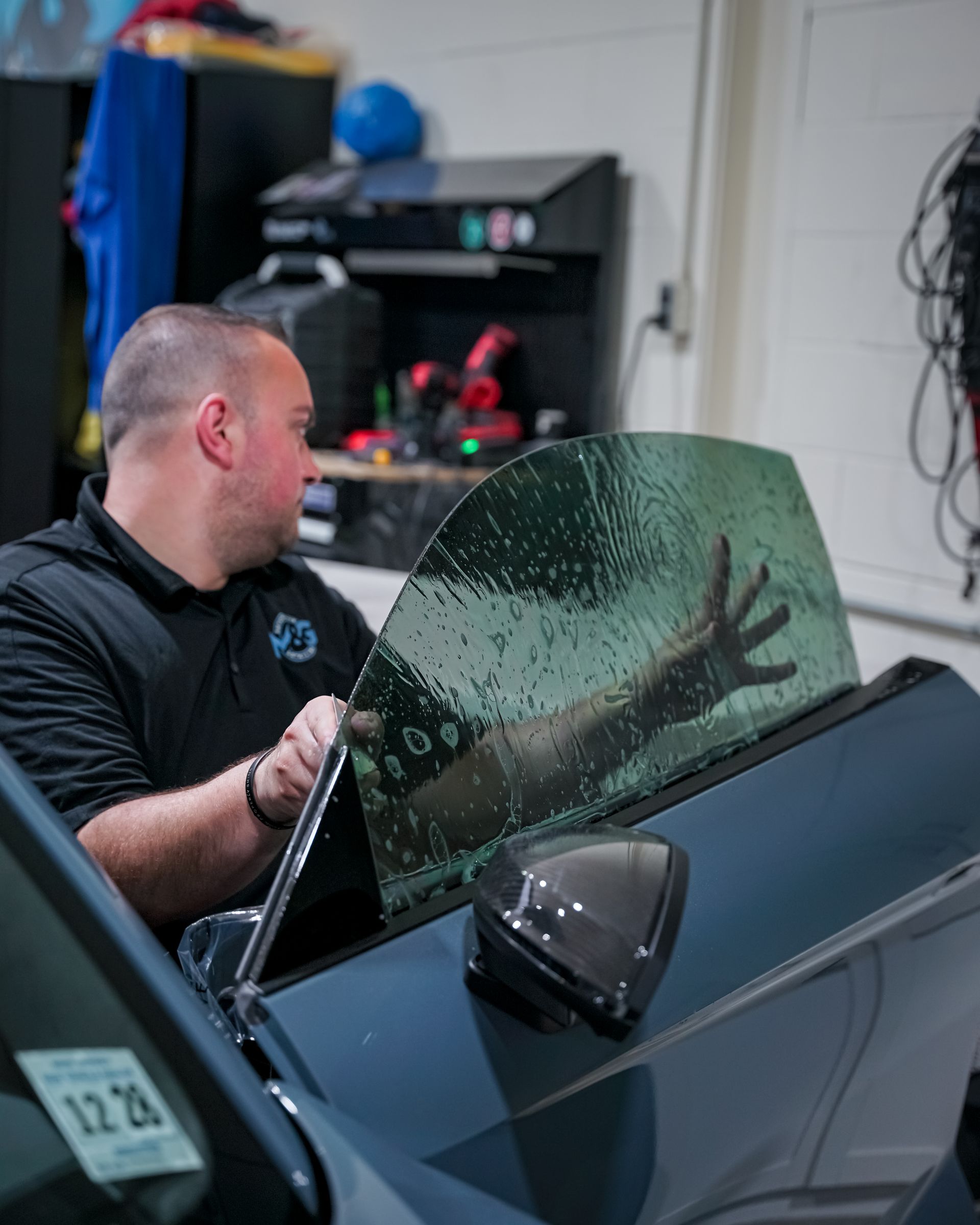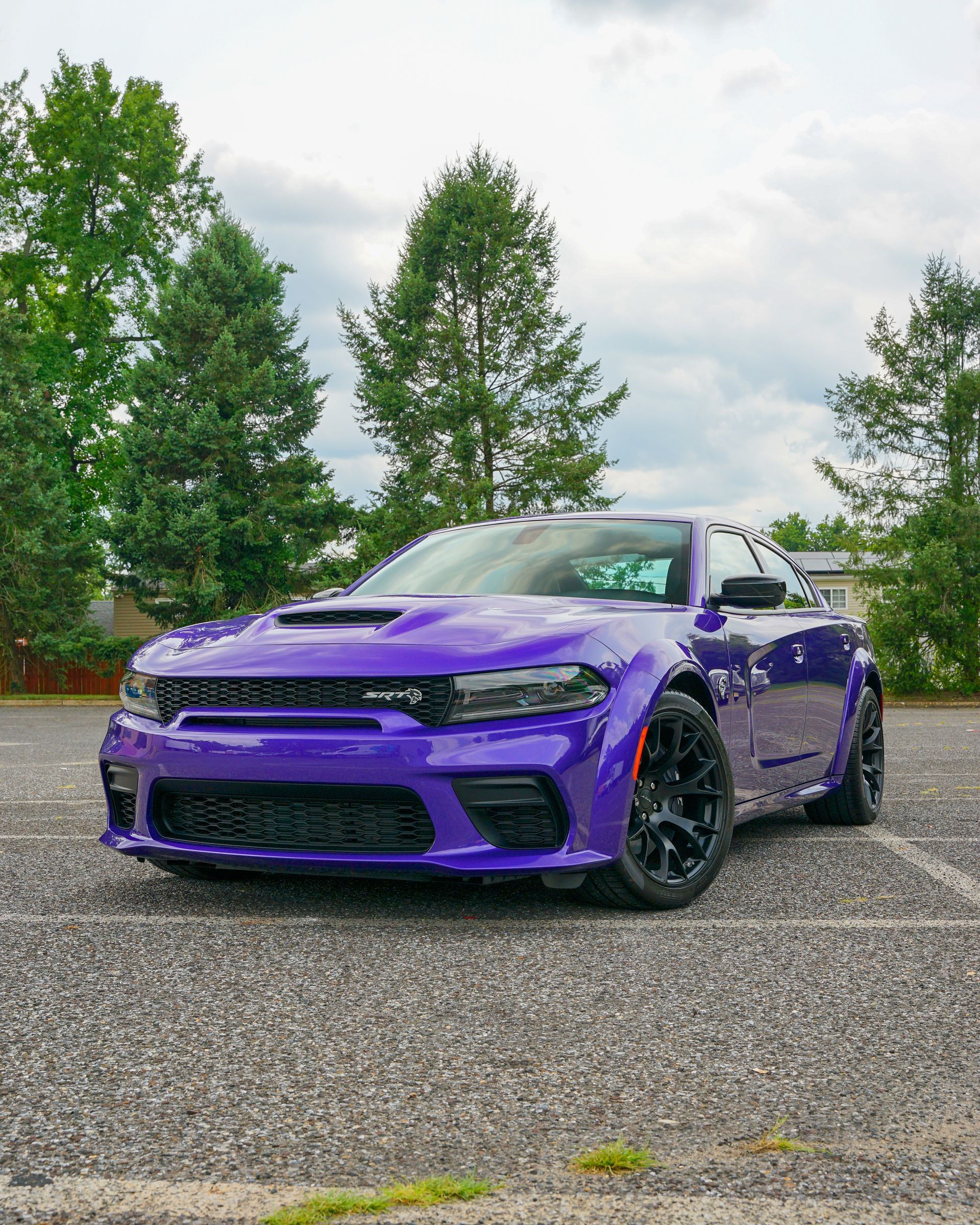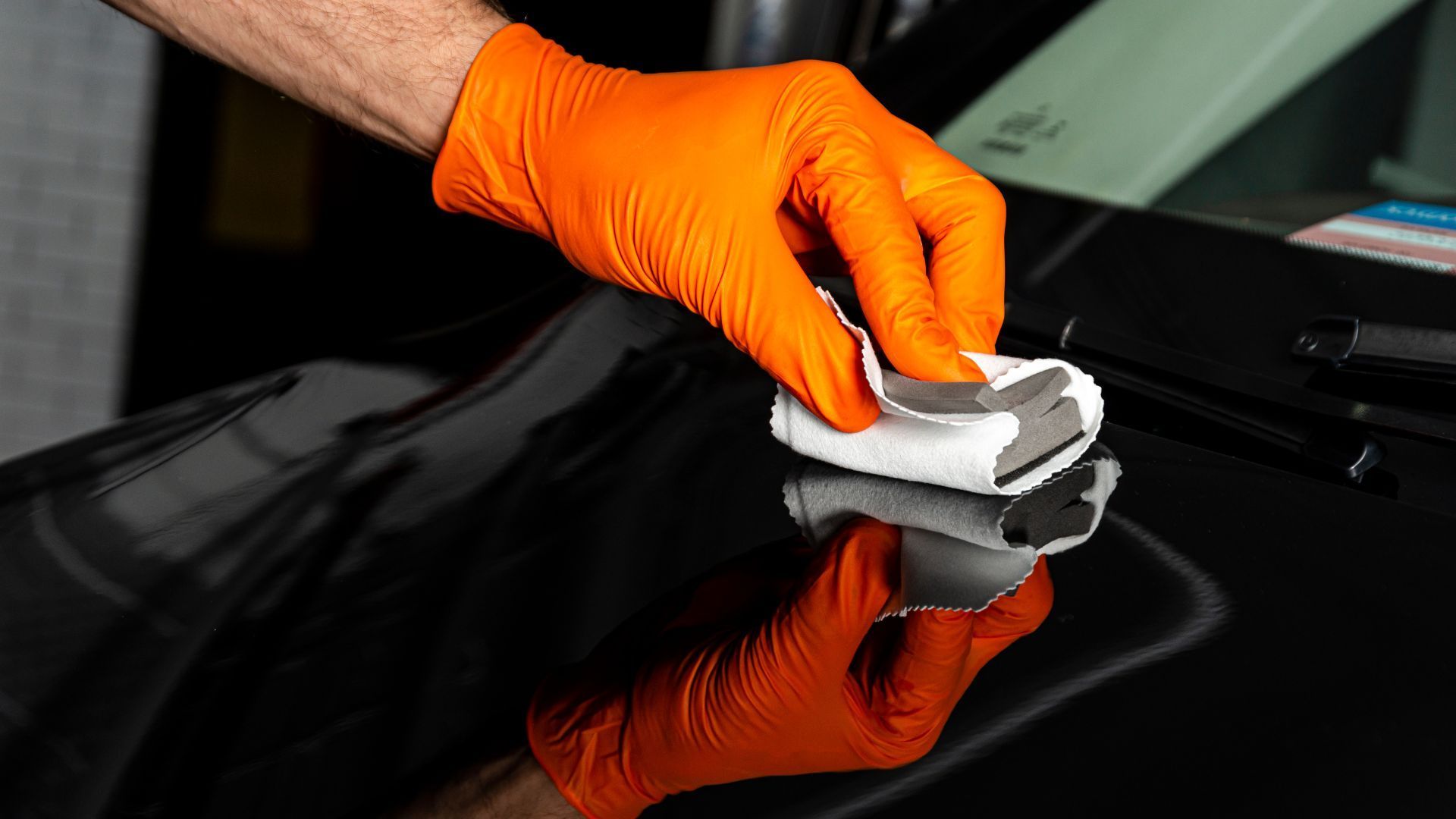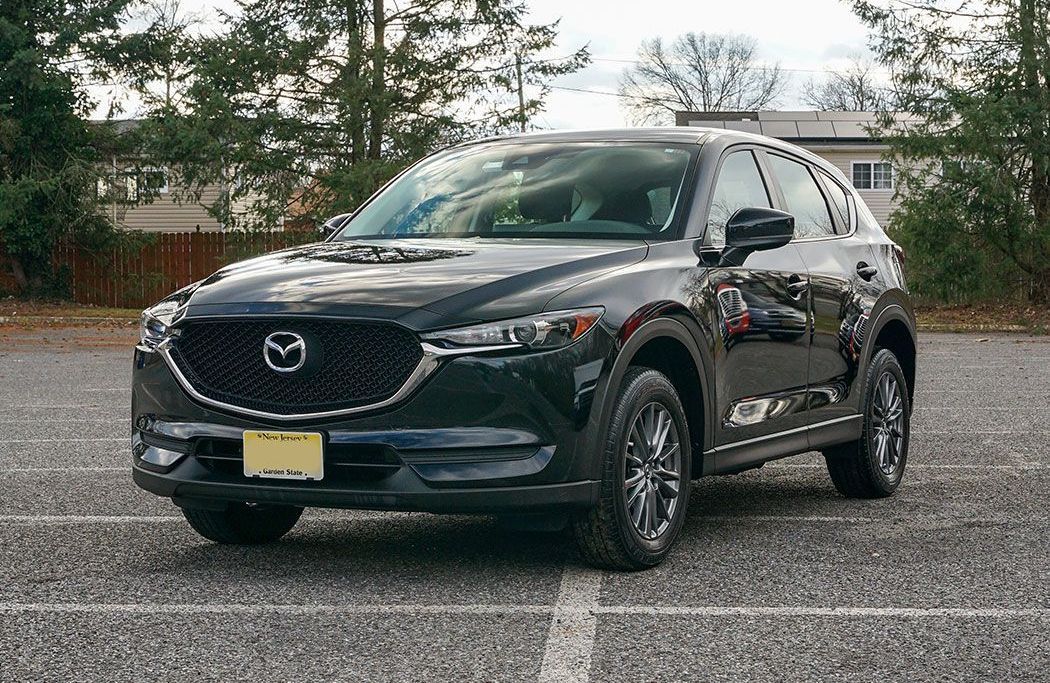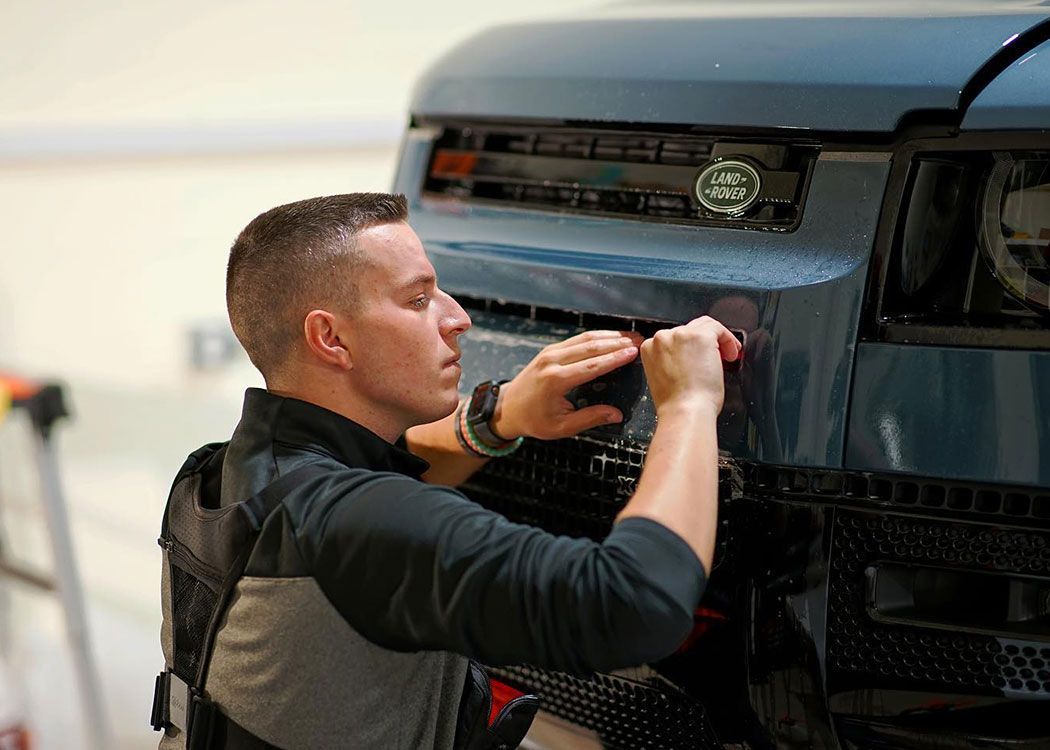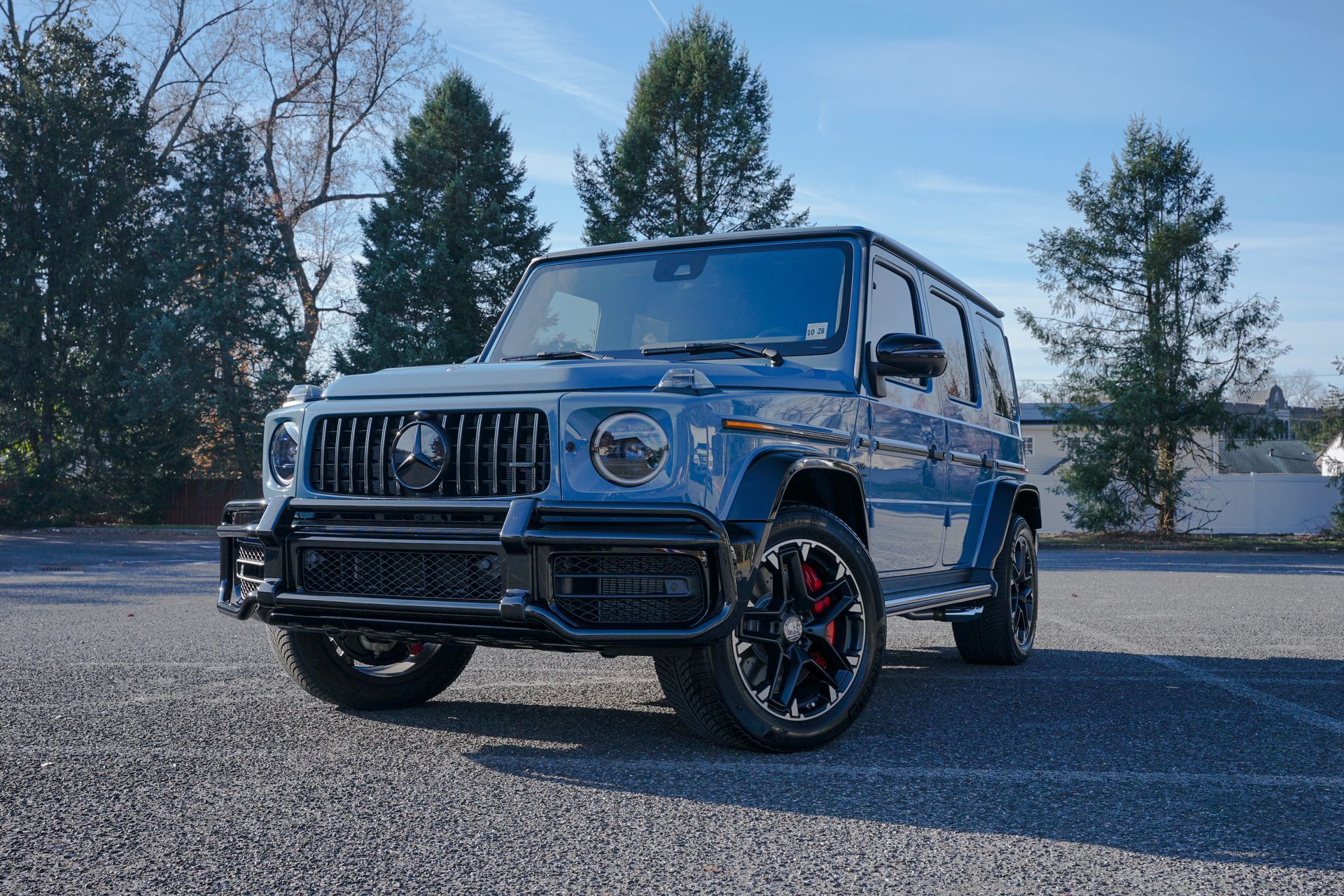Vehicle window tinting offers great benefits, especially in the area of privacy and security. By hiding what's inside from prying eyes, they make items less tempting to thieves, reducing the risk of break-ins. Adding to security, the film holds the glass together if it is broken, preventing it from spreading dangerous shards. Moreover, you might be surprised to know that high-quality tint materials add protection against harmful sun rays, which safeguards your car interior from damage over time.
Vehicle window tinting enhances privacy and security by reducing visibility into the car, making valuable belongings less conspicuous to potential thieves. Additionally, it acts as a barrier against harmful UV rays, protects the interior from fading, and creates a more secluded space within the vehicle for passengers.
Advantages of Tinted Windows: Increased Privacy and Enhanced Security
When it comes to vehicle window tinting, the benefits go beyond enhancing the car's appearance. Tinted windows play a vital role in ensuring increased privacy and security for both you and your vehicle. They create a shield against prying eyes, making it more difficult for outsiders to peek inside and take note of your valuable belongings. This layer of privacy serves as a deterrent for potential thieves, as they are unable to easily assess the contents of your vehicle. Tinted windows significantly diminish visibility into the car, reducing the likelihood of theft or break-ins by making valuable items less conspicuous.
Moreover, tinted film has an additional security aspect. In the event of an impact, whether from an attempted break-in or a collision, the film acts as a protective barrier. It effectively holds shattered glass together, preventing it from scattering and making it more challenging for intruders to access the vehicle. This quality becomes even more crucial in the case of an accident. In such unfortunate events, where windows may shatter upon impact, tinted windows significantly reduce the risk of injuries caused by flying glass fragments. This makes a compelling case for why investing in tinted windows is not just about aesthetics but also about ensuring safety for you and your passengers.
Remember, installing tinted windows is not just about style; it's a practical investment that enhances your safety and security while driving or when your vehicle is parked. The added layer of privacy and protection offered by tinted windows is truly invaluable in today's world, where safety is paramount.
Durability and Types of Window Tints
When investing in window tints, it's crucial to consider not only the immediate benefits but also the long-term durability and reliability they offer. One of the primary advantages of window tints is their ability to act as a shield against harmful UV rays, protecting the interior of your vehicle from sun damage such as fading, cracking, or deteriorating materials. However, not all tints are created equal; some offer extended longevity and resilience to color fading compared to others.
Types of Window Tints
- Ceramic Window Tints: Ceramic window tints are renowned for their exceptional durability, boasting the ability to block up to 99% of UV rays and providing impressive heat rejection capabilities ranging from 50-70%. This makes them an ideal choice for vehicle owners seeking robust protection against sun damage while maintaining optimal visibility with a visible light transmission of 35-55%. The added benefit of ceramic tints is their resistance to color fading over time, ensuring that your investment remains effective and aesthetically pleasing for an extended period of time.
- Carbon Window Tints: Carbon window tints offer a compelling balance between durability and performance. With the capacity to block 40-50% of heat and provide 99% UV protection, carbon tints are suitable for vehicle owners seeking reliable UV ray defense without compromising on appearance or light transmission. Carbon tints typically offer a visible light transmission of 5-50%, providing varying levels of tint darkness based on individual preferences. Additionally, the durable nature of these tints ensures minimal color fading over time, making them an attractive option for long-term use.
- Dyed Window Tints: Dyed window tints present a cost-effective option for UV protection and heat reduction. While their heat-blocking capabilities may vary from 5-50%, they offer minimal UV protection compared to ceramic or carbon tints. However, dyed tints remain a popular choice for those seeking basic tinting benefits without significant investment, although color fading over time can be more noticeable with this type of tint.
- Metalized Window Tints: For vehicle owners prioritizing strong UV protection and enhanced durability, metalized window tints stand out as an optimal choice. With heat rejection capabilities ranging from 10-40% and good UV protection, metalized tints provide substantial defense against sun damage while offering moderate visible light transmission levels. The metalized components within these tints contribute to their exceptional durability, reducing the risk of color fading over time despite prolonged exposure to sunlight.
Understanding the diverse characteristics and longevity offered by different types of window tints empowers vehicle owners to make informed decisions based on their specific priorities regarding UV protection, heat rejection, visibility, and long-term resilience. Each type presents unique advantages suited to varying preferences and requirements, ensuring that your chosen tint meets both immediate needs and sustained effectiveness.
UV Protection and Health Benefits
Tinted windows act as a shield against harmful UV rays from the sun, safeguarding not just your car but also you and your passengers. When we think about UV rays, most of us think about applying sunscreen when we're outside for a long time. But did you know that this kind of protection is also important inside your car? When you're driving or sitting in a car, you might not realize it, but you're being exposed to UV rays through the windows. It might not seem like much, but over time, it can add up and cause damage to your skin. Just like how you protect your skin when you're at the beach, tinted windows can help shield you from these potentially harmful rays.
It might come as a surprise to many that window film can block up to 99% of harmful UV rays. This is significant because prolonged exposure to UV radiation can lead to skin aging, sunburn, and an increased risk of skin cancer. Imagine driving for long hours regularly - that's regular exposure adding up day by day. Taking measures to minimize this risk becomes essential for both personal comfort and safety. Driving can be a relaxing experience but it can take its toll on one's skin without proper protection. This is where window tinting comes into play. By reducing exposure to harmful UV rays, tinted windows provide an added layer of defense for both drivers and passengers. It's like having invisible sunscreen right in your car!
Enhancing Energy Efficiency and Reducing Heat
When the sun beats down on your car, it doesn't just impact the temperature inside. It can lead to a sweltering driving experience and increased reliance on air conditioning, which guzzles fuel. However, high-quality window tinting comes to the rescue by significantly decreasing the amount of solar radiation that builds up within the vehicle.
The specialized construction of tinted windows intercepts a considerable portion of solar energy before it penetrates your vehicle. This equates to a substantial reduction in heat buildup, creating a more pleasant and temperate environment for you and your passengers. Take, for instance, a scorching summer day when you need to hop into your car after it has been parked in direct sunlight for hours. The interior of an untinted car would feel like an oven, requiring extensive air conditioning usage to reach a comfortable temperature—thus resulting in higher fuel consumption. However, with tinted windows, the heat accumulation is markedly reduced, lessening the strain on your air conditioning system and conserving fuel.
Moreover, this translates into long-term energy savings and a reduced environmental impact. By cutting down on excessive air conditioning usage, your vehicle operates more efficiently and uses less fuel, aligning with sustainable energy practices. Let's compare it to wearing a pair of sunglasses on a bright day. While sunglasses shield your eyes from harsh sunlight, reducing glare and eye strain, tinted windows similarly act as a barrier against excessive solar radiation, mitigating heat buildup and enhancing driving comfort. Window tinting is not just about improving privacy or elevating the aesthetic allure of your vehicle—it's also about fostering energy efficiency and ensuring a more comfortable driving experience while promoting environmental sustainability.
Maintaining Visibility for Safety
When it comes to vehicle window tinting, one of the top priorities is to ensure that it doesn't compromise safety on the road. Tinted windows strike a balance between privacy and visibility, allowing you to drive comfortably while keeping your surroundings in clear view.
Tinted windows effectively reduce the intrusion of glare from the sun and other vehicles' headlights. Imagine driving on a bright, sunny day or at night with numerous cars approaching from opposite directions. The direct glare can strain your eyes and reduce your ability to see clearly. Tinted windows act as a shield against this glare, making driving safer by improving visibility and reducing eye strain. This ultimately translates to a more comfortable and secure driving experience.
Additionally, specialized window tinting films are available to reduce external noise entering the vehicle. Loud and constant noise from traffic or other sources can be distracting and detrimental to driving concentration. These films act as a buffer against external noise, enhancing driving comfort without compromising safety. This is particularly beneficial for those who spend long periods behind the wheel, providing a more peaceful and focused driving environment.
Ultimately, the goal of maintaining visibility while benefiting from tinted windows is to create a safer, more comfortable driving environment. With reduced glare and minimized external noise, drivers can stay focused, alert, and better equipped for whatever the road may bring—a crucial aspect of road safety.
Guide to Professional Window Tinting Services
When it comes to enhancing privacy and security with window tinting, opting for professional service providers is crucial. Professional vehicle window tinting installation ensures adherence to local regulations and guarantees a high-quality application that maximizes the benefits and longevity of the tint, offering an expert touch that can make a significant difference.
Professional installers possess the experience, tools, and skills necessary to apply window tints accurately and effectively. They comprehend the subtleties of different types of tints, from ceramic to carbon to dyed films, and can provide valuable insights into the most suitable options for your specific privacy and security needs. For instance, if you're seeking enhanced UV protection or heat reduction, a professional installer can guide you towards specialized films designed for these purposes. Additionally, they are equipped to offer warranty information for their services, providing you with peace of mind regarding the longevity and performance of your window tinting.
Moreover, an essential aspect of professional window tinting services lies in the opportunity it presents for personal consultation. By engaging with knowledgeable professionals, you can gain comprehensive advice on selecting the most appropriate tint for your vehicle's make and model, as well as your individual requirements regarding privacy, security, and aesthetic preferences. Seeking professional advice has been invaluable in finding the perfect solution for my vehicle's specific needs. Professional vehicle window tint installers not only apply a layer of film; they create a customized solution tailored to your unique circumstances.
Taking advantage of professional installation ensures meticulous attention to detail and adherence to industry standards. This level of expertise elevates the installation process from a mere application to an informed decision that caters to your vehicle's requirements.
ExPERT Window Tinting Service in Cherry Hill, NJ
Ready to transform your vehicle with
top-notch window tinting? Look towards M&G Automotive Detailing in Cherry Hill, NJ. We take pride in our expert window tinting solutions, which promise both style and functionality. With precise application and premium materials, we ensure your ride stays cool and protected, all while enhancing its aesthetic appeal. Say goodbye to glaring sunlight and hello to a sleek, comfortable drive. Reach out to M&G Automotive Detailing today and let's tint those windows to perfection. Call us at
(609) 923-3123 to get started!

